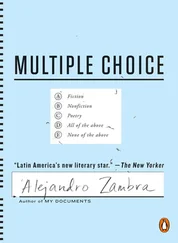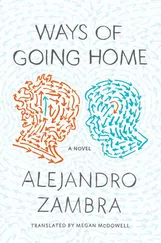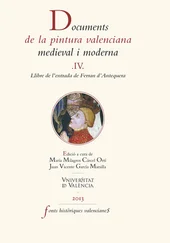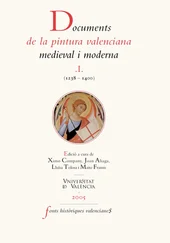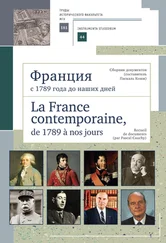Rodrigo starts the joke uncertainly, because as he strings the story together, he thinks that maybe in Belgium and Holland they have the same joke, that maybe there are as many versions of the joke as there are countries in the world. His listeners react well, however, giving themselves over to the story: they enjoy the enumeration of the cities, whose names sound so strange to them (“‘Arica’ sounds like ‘Osaka,’” says Bart), and when the chilliest man in the world, who is Chilean, dies of cold under the burning sun of Bangkok, his friends let out an anxious giggle and grab their heads in a mournful gesture.
The chilliest man in the world had been a good son, a good father, a good Christian, so Saint Peter accepts him into Heaven without delay, but the problems start immediately: incredibly, even though in heaven hot and cold don’t exist — at least not in the way we understand them down here — and even though all the rooms in that formidable hotel that is Heaven automatically adjust to the needs of their guests, the Chilean still feels cold, and in his friendly but also effusive manner he goes on complaining, until the blessed patience that reigns in Heaven runs out, everyone gets fed up, and they all agree that the chilliest man in the world should go find a truly beneficial climate. It is God himself who decides to send him to Hell, where it’s unthinkable that he could go on feeling cold. But in spite of the unquenchable fires, the burning waters, the scorching coals, and the human heat, which in such an overcrowded place is intense, the chilliest man in the world still feels cold, and the case becomes so famous that it reaches the ears of Satan, who sees it as an amusing challenge and decides to take matters into his own hands.
One morning, Satan himself leads the Chilean to nothing less than the hottest place imaginable: the center of the sun. It’s so hot there that Satan has to put on a special suit or else he’ll get burned. Once inside the center of the sun, they come to a small two-by-two-meter cubicle, and Satan opens the door. The Chilean enters and he stays there, hopeful and deeply grateful. Weeks pass, months, years, until one day, moved by curiosity, the Devil decides to pay the Chilean a visit. He puts on his special suit again — even reinforces it with two additional layers, because he thinks he may have singed himself on the previous trip — and he heads off to the sun. He has scarcely opened the door to the cubicle when he hears the Chilean shout from inside: “Please close the door, it’s chilly in here!”
“Please close the door, it’s chilly in here!” says Rodrigo, and his performance is a success.
“I think that you are the chilliest man in the world,” Bart tells him, “and I want the chilliest man in the world to try the best beer in the world.” Piet proposes they go to a bar where they sell hundreds of beers, but in the end they decide to go somewhere closer, where they clandestinely sell Westvleteren, the so-called best beer in the world, and on the way Rodrigo leans on the umbrella, but he doesn’t know if it’s necessary, he feels like he doesn’t need it anymore and could throw it away, but he goes on using it anyway while he listens to the story of the Trappist monks who make the beer and sell it in modest quantities, a story he finds amazing. He hopes he likes the beer a lot and he does, although they buy only one for the three of them, because the bottle costs ten euros.
They go back to the apartment at two in the morning with their arms around each other, so Rodrigo doesn’t have to use the umbrella: they look drunker than they are. Later, in the living room, they go on drinking for a while, they half listen to each other, they laugh. “You can stay, but only for tonight,” says Piet, and Rodrigo thanks him. They drag in a mattress while Bart stretches out on an old chaise lounge and covers himself with a blanket. Rodrigo thinks about what he will do if Bart tries something in the middle of the night. He considers whether he will reject him or not, but he falls asleep, and Bart does too.
He wakes up early; he’s alone in the living room. He’s a little hungover, and the coffee he finds in the kitchen does him good. He looks at the street, he looks at the buildings, the silent facade of the pizzeria. He wants to say good-bye to Piet, and he cracks open the door to his room: he sees him sleeping next to Bart in a half embrace. He leaves them a note of thanks and goes down the four flights of stairs. He has absolutely no plan, but he’s encouraged by the idea of walking without a cane, and once in the street he tries it, like in a happy ending. But he can’t do it, and he falls. It’s a nasty fall, a hard fall, his double pants rip, his knee bleeds. He stays on the corner, thinking, paralyzed by pain, and it starts to rain, as if he were a character in a cartoon with a cloud hanging above him — but this rain is for everyone, not just him.
It’s a cold and copious rain and he should look for a place to take shelter. He has very little money left, but he has no choice but to buy another umbrella. This is the moment to think of Elisa and curse her, but he doesn’t do it. Now he has two umbrellas, the blue one for balance and the black one for the rain; he says it out loud, in the same calm tone in which he would say his name, first and last, his birthplace. “Now I have two umbrellas, blue for balance and black for rain,” he repeats, as he starts to walk, with no other purpose than that, simply: to walk.
It’s not hot out, it’s not cold. A shy, sharp sun overcomes the clouds, and the sky looks, at times, truly clean, like the sky blue of a child’s drawing. Martín is in the last seat of the bus, listening to music, bobbing his head like the young folks do, but he’s not young anymore, not by a long shot: he’s forty years old, his hair fairly long, black, and a little curly, his face extremely white — well, there ’ll be time later to describe him. For now he’s just gotten off the bus, carrying a backpack and a suitcase, and he is walking a few blocks in search of an address.
The job consists of taking care of the cat, running the vacuum cleaner every once in a while, and watering some indoor plants that seem destined to dry out. I’m not going to go out much, hardly at all, he thinks, with a trace of happiness. Only to buy food for the cat, to buy food for myself. There is also a silver Fiat that he has to drive every so often (“So it can breathe,” they’ve told him). For now, he’s spending time with the family: it’s seven in the evening, and they’ll be leaving very early, at five thirty a.m. Here is the family, in alphabetical order:
Bruno: sparse beard, blondish, tall, smoker of black tobacco, literature professor.
Consuelo: Bruno’s partner, not his wife, because they never married, although they act like a married couple, perhaps worse than a married couple.
Sofía: the daughter.
She’s just run past, the little girl, chasing after the cat toward the stairs. She doesn’t greet Martín, doesn’t look at him; these days kids don’t say hi, and maybe that’s not such a bad thing, because adults say hi too much. Bruno explains to Martín some of the details of the job while, at the same time, arguing with Consuelo about how to organize a suitcase. Then Consuelo approaches Martín with a friendliness that unsettles him — he isn’t used to friendliness — and shows him the cat’s bed, the litter box, and a piece of pressed cloth where the cat can sharpen its claws, although none of these things get much use, according to Consuelo, because the cat sleeps wherever he feels like it, does his business in the yard, and scratches on all the chairs. Consuelo also shows him how the little door works, the mechanism that allows the cat to go out but not come in, or come in but not go out, or come in or out as it likes. “We always leave it open,” says Consuelo, “so she can be free — it’s like when our parents finally gave us the keys to the house.”
Читать дальше

